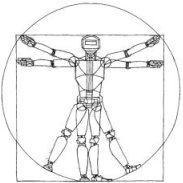Robotics: Science and Systems XVII
Learning Riemannian Manifolds for Geodesic Motion Skills
Hadi Beik-Mohammadi, Søren Hauberg, Georgios Arvanitidis, Gerhard Neumann, Leonel RozoAbstract:
For robots to work alongside humans and perform in unstructured environments; they must learn new motion skills and adapt them to unseen situations on the fly. This demands learning models that capture relevant motion patterns; while offering enough flexibility to adapt the encoded skills to new requirements; such as dynamic obstacle avoidance. We introduce a Riemannian manifold perspective on this problem; and propose to learn a Riemannian manifold from human demonstrations on which geodesics are natural motion skills. We realize this with a variational autoencoder (VAE) over the space of position and orientations of the robot end-effector. Geodesic motion skills let a robot plan movements from and to arbitrary points on the data manifold. They also provide a straightforward method to avoid obstacles by redefining the ambient metric in an online fashion.Moreover; geodesics naturally exploit the manifold resulting from multiple-solution settings to design motions that were not demonstrated previously. We test our learning framework usinga7-DoF robotic manipulator; where the robot satisfactorily learns and reproduces realistic skills featuring elaborated motion patterns; avoids previously–unseen obstacles; and generates novel movements in multiple-solution settings.
Bibtex:
@INPROCEEDINGS{Beik-Mohammadi-RSS-21,
AUTHOR = {Hadi Beik-Mohammadi AND Søren Hauberg AND Georgios Arvanitidis AND Gerhard Neumann AND Leonel Rozo},
TITLE = {{Learning Riemannian Manifolds for Geodesic Motion Skills}},
BOOKTITLE = {Proceedings of Robotics: Science and Systems},
YEAR = {2021},
ADDRESS = {Virtual},
MONTH = {July},
DOI = {10.15607/RSS.2021.XVII.082}
}
